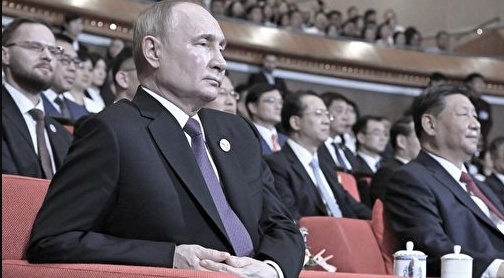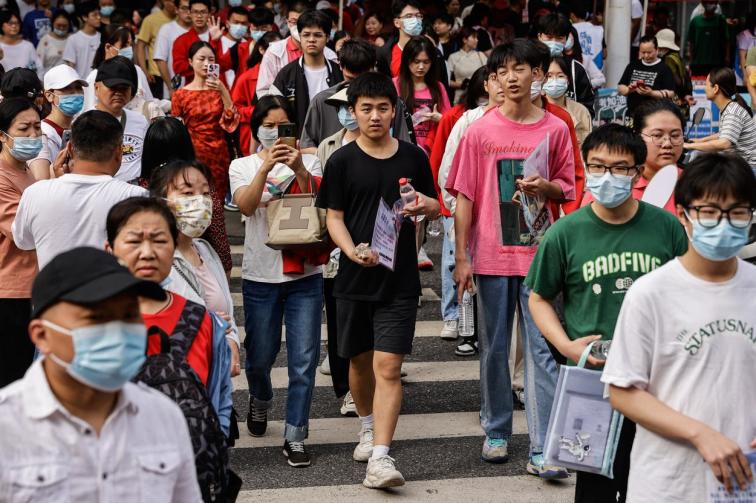[People News] On issues involving Taiwan and Japan, what Beijing cares about most is the U.S. position. Now that China and Japan are locked in fierce tension, Beijing naturally wants to see where the U.S. stands. On November 24, CCP leader Xi Jinping took the rare step of calling U.S. President Trump. A few hours later, Trump phoned Japanese Prime Minister Sanae Takaichi. Afterward, Takaichi told the press that Trump said she was a good friend and could call him anytime—undoubtedly a slap in the face to Xi.
On November 24, Xi Jinping unusually took the initiative to call Trump. The two had met face-to-face in South Korea on October 30. Less than a month later, Xi proactively contacted Trump again. At such a sensitive moment, observers were focused on whether the two discussed Japan and Taiwan.
Xinhua’s first report quoted Xi in the call saying that “China and the U.S. both benefit from cooperation and suffer from confrontation,” a principle repeatedly proven in practice, and that “mutual success and shared prosperity” between China and the U.S. is a visible and tangible reality.
Xi mentioned the Taiwan Strait, declaring that “Taiwan’s return to China is an important component of the post–World War II international order. China and the U.S. once fought side by side against fascism and militarism, and today should work together to safeguard the fruits of victory in the war.”
Xinhua further presented Trump’s remarks in first person, asserting that Trump said “China played an important role in the victory of World War II, and the U.S. understands the importance of the Taiwan issue to China.”
It was clear Xi sought to win Trump over by invoking “World War II allies.” A few hours after speaking with Xi, Trump announced on the social media platform Truth Social that he had accepted Xi’s invitation and would visit Beijing in April next year. He also invited Xi for a later state visit to the U.S. Trump revealed that the two discussed Ukraine, fentanyl, soybeans, and other agricultural products.
Notably, Beijing was the first to release news about the call but omitted mention of the state visit, saying only that the two discussed trade, Taiwan, and Ukraine. Trump’s social media post, however, did not mention Taiwan at all.
A few hours after the Xi–Trump call, the secure phone line at the Japanese Prime Minister’s Office rang. Sanae Takaichi received a call from Trump that lasted about 20 minutes. Was this merely friendly banter between allies?
Takaichi told reporters that Trump said they were extremely close friends and that she could call him anytime. She also confirmed that Trump “explained” the recent state of U.S.–China relations to her. But when asked whether they discussed her “Taiwan contingency” remarks, Takaichi declined to give details, citing diplomatic confidentiality, and emphasized only that the two reaffirmed “strengthening of the U.S.–Japan alliance” and “issues facing the Indo-Pacific region.”
Regarding Xi’s call to Trump, Tiananmen student leader Wang Dan commented on Facebook, “This is obviously complaining to the U.S. about Japan. This is tantamount to admitting the U.S.’s influence in Asia and acknowledging that the CCP’s diplomatic pressure on Japan has failed and that it can’t do anything about Japan.”
He argued that Xi’s move to complain was actually a diplomatic blunder.
According to Taiwan’s Tai Sounds, on November 25, National Security Council Deputy Secretary-General Lin Fei-fan said in a Pop Radio interview with host Huang Wei-han that Trump had already informed Japanese Prime Minister Sanae Takaichi before speaking with Xi, and later called her as well because synchronized information between allies is crucial. This shows Trump had no intention of sidelining U.S.–Japan relations but was considering how to manage risks from Beijing.
Responding to claims that Trump called Takaichi after speaking with Xi in order to “rein in” or even “reprimand” her, Lin Fei-fan said: “I completely disagree with that interpretation. It reflects a severe misunderstanding of U.S.–China relations or a deep misunderstanding of U.S.–Japan relations.”
Lin continued, explaining that for a long time now, whether in terms of security deployments or balancing China’s geopolitical influence, the U.S. and Japan have been core allies. The two countries have highly coordinated approaches to dealing with the threat posed by China (the CCP), and they have near-daily bilateral communication.
Lin also said the National Security Council is closely monitoring developments and remains in excellent communication with the U.S. side. Aside from what appears in the media, communication with the U.S. is essentially ongoing every day.
△










News magazine bootstrap themes!
I like this themes, fast loading and look profesional
Thank you Carlos!
You're welcome!
Please support me with give positive rating!
Yes Sure!